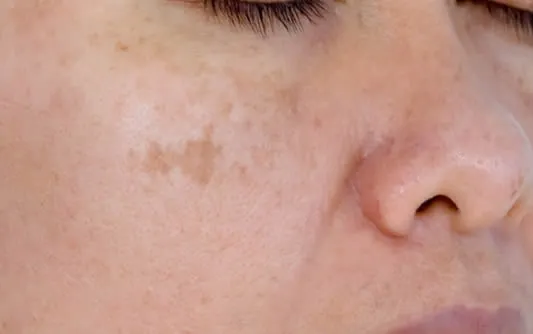Many people use the terms “age spots” and “sun spots” interchangeably, but they are not the same thing. While both are related to the sun, they have different causes and treatments. In this article, we’ll take a closer look at age spots and sun spots, and how to tell the difference between the two.
What are Age Spots?
Age spots, also known as liver spots, are flat, brown or black spots that appear on the skin as we age. They are usually found on areas of the skin that have been exposed to the sun, such as the face, hands, and arms. Age spots are caused by the overproduction of melanin, the pigment that gives our skin its color.
What are Sun Spots?
Sun spots, also known as solar lentigines, are similar to age spots in appearance, but they are caused by sun exposure. Sun spots are usually lighter in color than age spots, and they can appear anywhere on the body that has been exposed to the sun.
How to Tell the Difference
The easiest way to tell the difference between age spots and sun spots is by their location. Age spots are usually found on areas of the skin that are regularly exposed to the sun, while sun spots can appear anywhere on the body. Additionally, age spots are usually darker in color than sun spots.
Treatment Options
If you are concerned about age spots or sun spots, it is important to see a dermatologist. Dr. Raskin of Bakersfield Dermatology can provide a thorough examination and recommend a treatment plan tailored to your individual needs. Treatment options may include:
- Laser therapy
- Cryotherapy
- Chemical peels
- Topical creams
Prevention
The best way to prevent age spots and sun spots is by protecting your skin from the sun. This includes wearing sunscreen with an SPF of at least 30, wearing protective clothing such as hats and long-sleeved shirts, and seeking shade during the hottest parts of the day. Avoiding tanning beds and other sources of UV radiation is also important.
Conclusion
Age spots and sun spots may look similar, but they have different causes and treatments. If you are concerned about any spots on your skin, it is important to see a dermatologist. Dr. Raskin of Bakersfield Dermatology can provide expert care and treatment options tailored to your individual needs. Remember, prevention is key when it comes to protecting your skin from the sun.
If you are looking for more information about skin cancer prevention and treatment, visit the Bakersfield Dermatology website.


